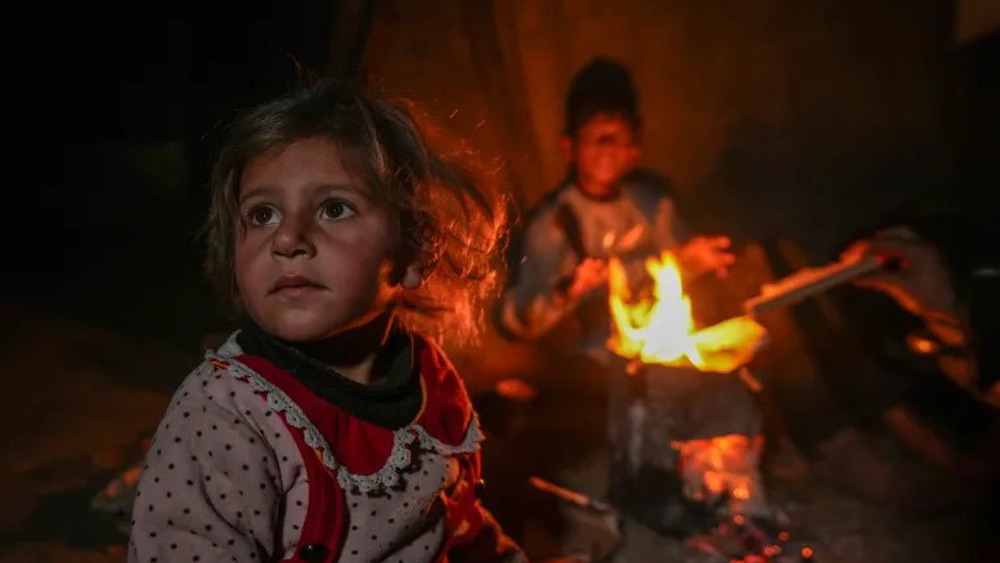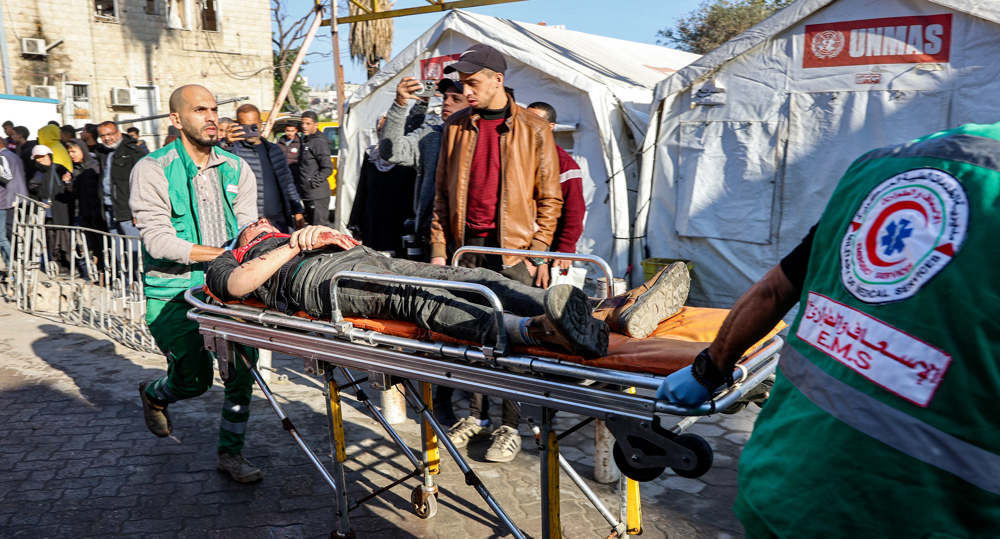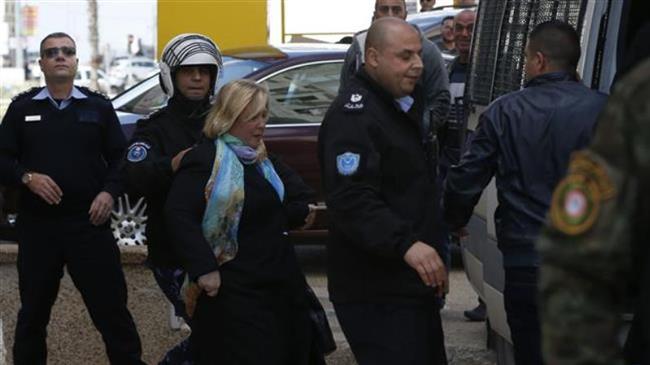Gazans defy Israeli tanks, snipers in ‘Great March of Return’
Thousands of Palestinians march near the Gaza fence where Israel has positioned tanks and snipers for fear of mass attempts to break through the barrier.
Nevertheless, a number of protesters entered within a few hundred meters (yards) of the heavily fortified fence Friday to mark the annual Palestinian Land Day.
On the “buffer zone”, men, women, and children gathered in "The Great March of Return" to demand the right of return for those Palestinians who have been driven out of their homeland due to the Israeli occupation.
The March 30 date for the start of the protest marks "Land Day" commemorating the six Arab citizens of Israel who were killed by Israeli troops during demonstrations in 1976 over land confiscations in northern Israel.
Camping and protests in Gaza are expected to continue until May 15, the day Palestinians call the "Nakba" or "catastrophe", marking the displacement of hundreds of thousands of Palestinians in the conflict surrounding the creation of Israel in 1948.
The end of the rally will coincide with a planned US inauguration of its controversial new embassy in Jerusalem al-Quds following President Donald Trump’s declaration of the holy city as the “capital” of Israel.
Palestinians are intensely agitated by the decision, especially those in the Gaza Strip where some 1.3 million of the besieged territory’s 1.9 million residents are refugees or their descendants.
The protests have raised concerns in Israel, with the military adding hundreds of reinforcements, including more than 100 special forces snipers, along the fence in recent days.
Armed forces chief Lieutenant General Gadi Eisenkot has warned of escalating tensions. Israel's ambassador to the United Nations, Danny Danon, labeled the protest an "organized planned provocation".

Early Friday, Israeli shelling killed a Palestinian farmer just hours before the launch of the protests. As the protests started, troops killed at least one protester and injured about 50 others.
Five main camp sites have been set up, spanning the length of the coastal territory from near the Erez border crossing in the north to Rafah in the far south, near Egypt.
One organizer said tens of thousands of meals would be prepared for more than 100,000 expected participants.
By midday on Friday, thousands of Palestinians from across the besieged enclave had gathered at the site and more were streaming toward the tents.

Similar protests were expected in Jerusalem al-Quds. The organizers have further called for protest rallies in Jordan, Syria, and Lebanon.
A young couple were married next to a tent along the fence in Jabalia in northeastern Gaza on Thursday evening.
"70 years ago we left and today we have decided to return to our country," Khaled al-Batsh, one of the protest organizers, told AFP.
According to local reports, Israeli soldiers stationed to the east of the Gaza Strip have been targeting agricultural land lots and young farmers with gunfire since Wednesday, when local Palestinians first began setting up the tents for the protest action.
VIDEO | Yemenis praise the military for its successful operations against Israel
VIDEO | Israel continues to bomb Gaza homes
VIDEO | An insider's view of the country: Meybod City in Yazd
‘All wars have rules. All of those rules have been broken’ by Israel
VIDEO | Report flags India’s violation of rights of Rohingya detainees
Turkey's foreign minister meets Syria's de facto leader in Damascus
VIDEO | US Syria plots
'Next to impossible' to rescue patients from Gaza's Kamal Adwan Hospital: Director













 This makes it easy to access the Press TV website
This makes it easy to access the Press TV website